

Pamela Stanley is an editor and senior author of 8 chapters in the textbook “Essentials of Glycobiology” published by Cold Spring Harbor Laboratory Press in 2022, now in its 4th edition. The group of editors and authors of all 4 editions of EoG received the Distinguished Service Award from the Society of Glycobiology at its annual meeting on Amelia Island, Florida in November 2024. The award is for service to the scientific community in general, and in particular to the community of glycobiologists, for providing a comprehensive textbook which is freely available online at NCBI books upon publication https://www.ncbi.nlm.nih.gov/books/NBK579918/ All proceeds from sales of the print version of the textbook go to a non-profit established by the group of editors to support the publication of next editions of the book. Pamela Stanley was recently elected President of the Consortium of Glycobiology Editors (CGE).
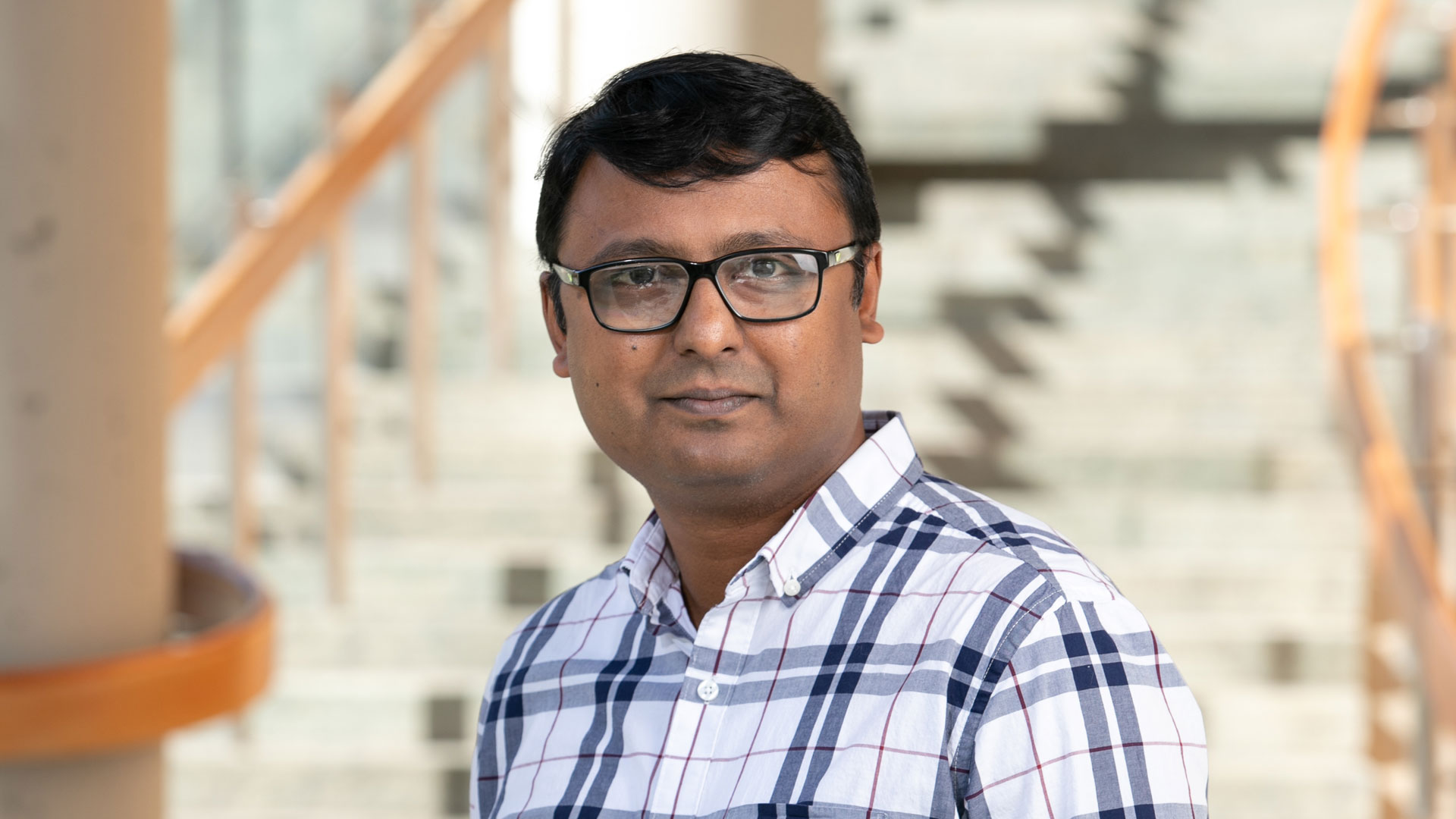
Satish Nandakumar, Assistant Professor of Cell Biology, was recently awarded a pilot grant of $100,000 from the Henry and Marilyn Taub Foundation for his studies on the role of antigen presentation in clonal expansion of blood forming stem cells in myelodysplastic syndromes (MDS). This study will explore a novel mechanism based on clues from human genetic studies on clonal hematopoiesis, a precursor state that often precedes MDS. Dr. Gregoire Lauvau, Professor of Microbiology & Immunology is a co-investigator in this project.
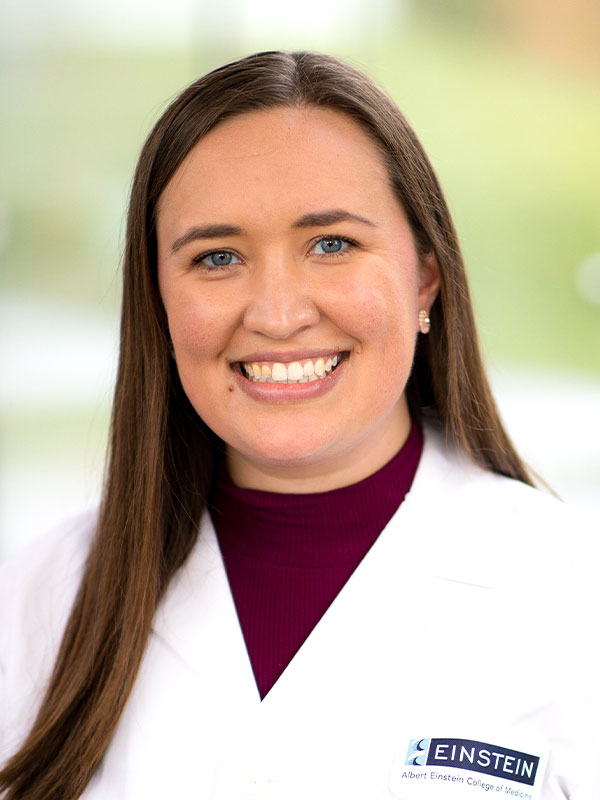
Dr. LaFave receives two lung cancer foundation grants from the A Breath of Hope Foundation and the Lung Cancer Research Foundation
Dr. LaFave has been awarded two foundation grants and a special award to support lung cancer research projects in her lab. In the A Breath of Hope Peg’s Fight for Life grant, Dr. LaFave and her team will investigate differences in immunotherapy responses in KRAS and EGFR mutant lung tumors using genetically engineered mouse models and patient samples. This study will determine why EGFR mutant lung tumors are less responsive to immunotherapy than KRAS mutant tumors. Dr. LaFave received a second foundation grant from the Lung Cancer Research Foundation (LCRF) to investigate how chromatin state impacts immunity in lung tumors that arise in individuals with and without a smoking history. This research aims to identify the key chromatin regulators that impact immunity in smokers and never smokers and will provide insight to improve treatment approaches for lung cancer. For her LCRF proposal, Dr. LaFave was also awarded the prestigious William C. Rippe award for Distinguished Research in Lung Cancer. This award is given to the investigator “whose proposal not only demonstrated exceptional scientific merit but also exemplified an enduring commitment to making an impact in the field of lung cancer research”.

Dr. Nandakumar receives a prestigious research grant from the Edward P. Evans Foundation!
Dr. Nandakumar has been awarded the prestigious Edward P. Evans Foundation Discovery Research Grant to support his research on germline predisposition to clonal hematopoiesis (CH) and its progression to myelodysplastic syndromes (MDS). Over the next three years, his team will utilize multiplex genome editing technologies in human hematopoietic stem cells to test hundreds of germline somatic mutation combinations and identify critical gene interactions that underlie formation of premalignant stem cell clones. The studies will examine how these premalignant clones are transformed into MDS cancer stem cells that stop producing red blood cells which is a serious problem for MDS patients. Knowledge gained from this research could enable the development of new treatments that target CH clones and prevent MDS development.
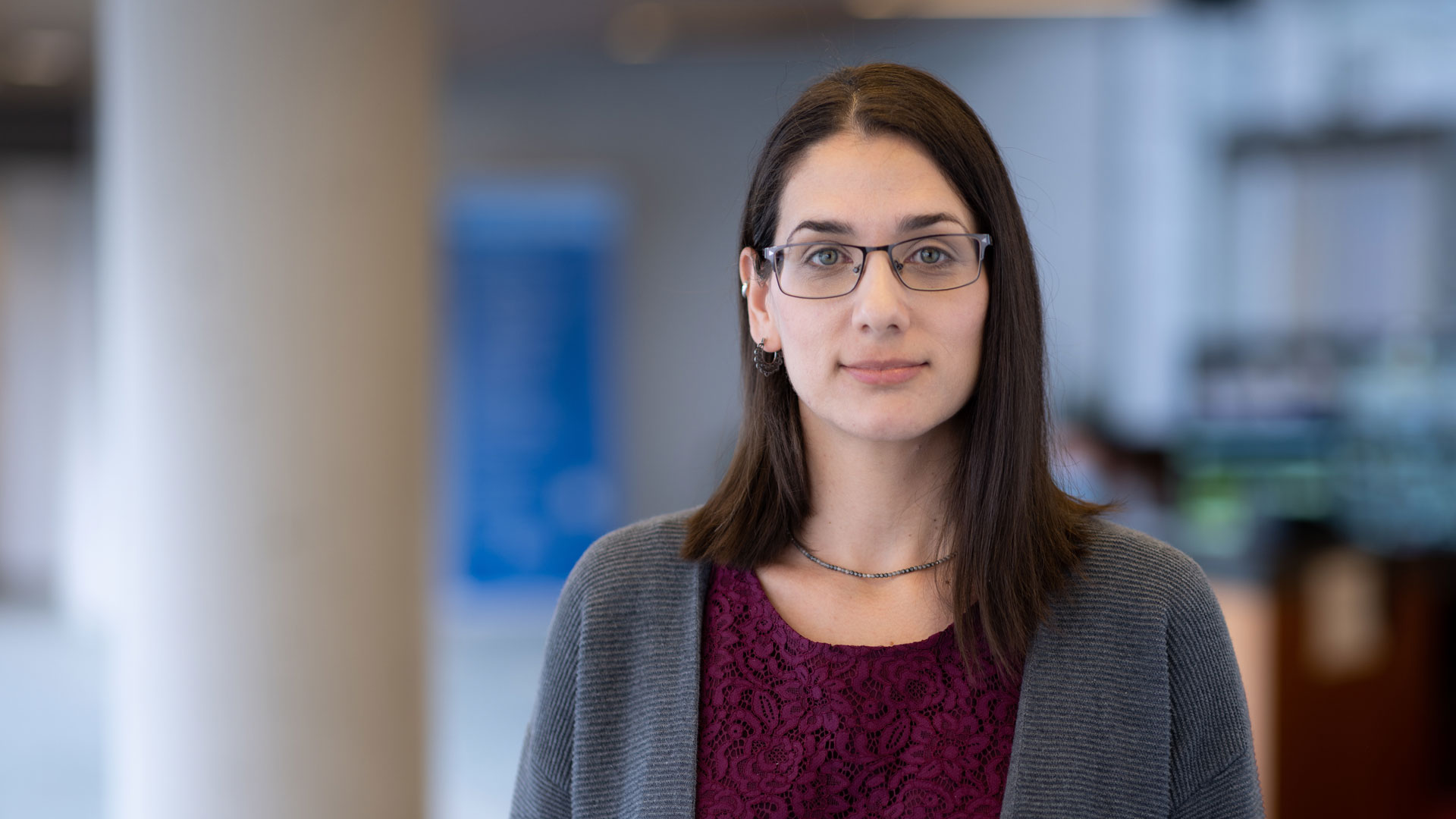
Dr. Marianovich receives her first NIH R01!
Dr. Maria Marianovich, an Assistant Professor in the Department of Cell Biology, was awarded a five-year, $3 million R01 grant from the National Heart, Blood, and Lung Institute (NHLBI) of the National Institutes of Health (NIH) to study the effects of aging on hematopoiesis. Using novel genetic models and sophisticated bone marrow imaging methodologies, Dr. Marianovich and her team will investigate how the autonomic nervous system controls components of the hematopoietic stem cell niche in the bone marrow to regulate aging of the blood system. The overall goal of this study is to identify new mechanisms of hematopoietic aging that can be targeted for the development of rejuvenation therapies.
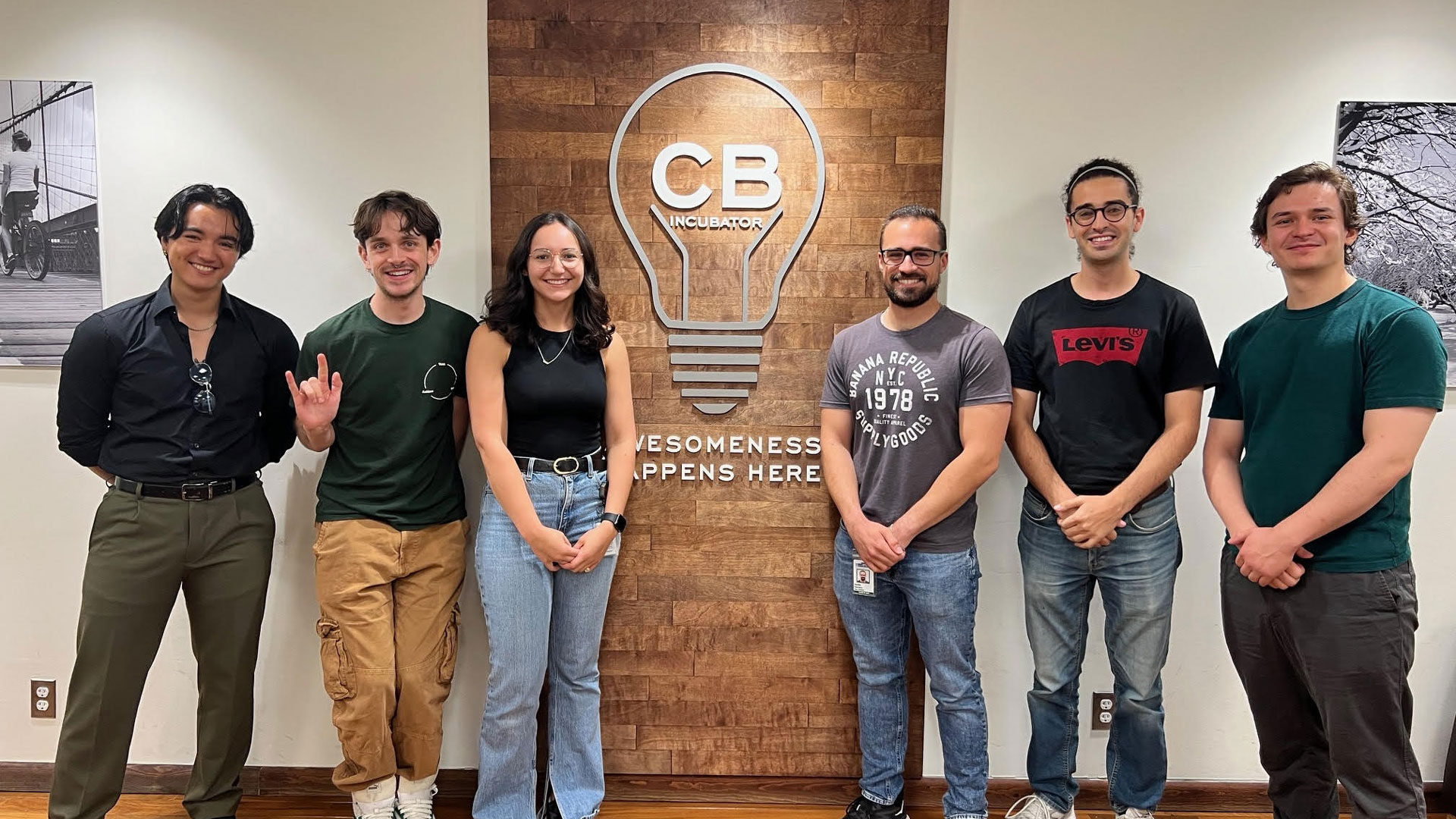
Seven new graduate students joined the Department of Cell Biology!
The warmest welcome to the 7 new Ph.D. students who recently declared a thesis lab in our department. We are glad you are here, and we look forward to learning about your research, talent, and ambitions at CB Journal Clubs and WIPs. This highly dynamic and interactive community has so much to offer to our trainees, we are confident that you will soon find Cell Biology a truly exciting place to pursue your graduate studies. Congratulations to our new students and their mentors!
-
Alison Chafitz
Mentor: Rebeca San Martin
Justin Ferraro
Mentor: Lindsay LaFave
Karthik Ledalla
Mentor: Kristy Stengel
Shane Mitchell
Mentor: Kira Gritsman
-
Victor Morell
Mentor: Kristy Stengel
Lucia Petriz Otano
Mentor: Julio Aguirre-Ghiso
Akiva Rube
Mentor: Lindsay LaFave
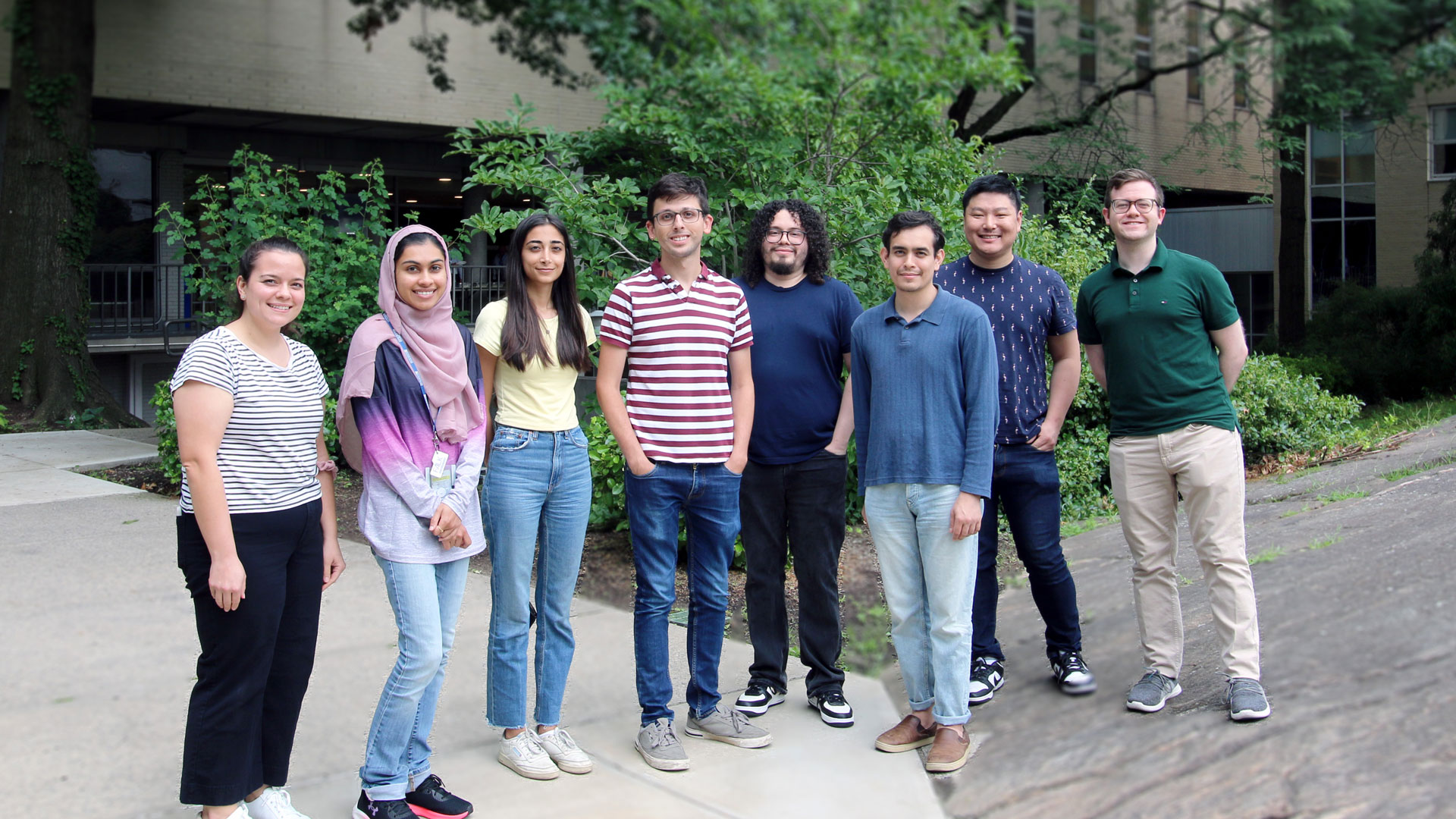
Eight Cell Biology Students Successfully Completed their Qual!
For Ph.D. students, completing the Qualifying Exam marks an important milestone in their graduate training as this signals the advancement to candidacy for the doctoral degree. To all of our students who worked hard and achieved this significant goal this spring: You did it! Congratulations!
-
Farzana Begum
Mentors: Maria Marianovich & Ulrich Steidl
Amber Buhagiar
Mentor: Ulrich Steidl
Lionel Colon
Mentor: Julio Aguirre-Ghiso
Eric Liu
Mentor: Hilda Ye
-
Sara Mosavarpour
Mentors: Roger Chang & Lindsay LaFave
Brendan Mullaley
Mentor: Lindsay LaFave
Ariel Raskin
Mentor: Kristy Stengel
Luis Valencia Salazar
Mentor: Julio Aguirre-Ghiso
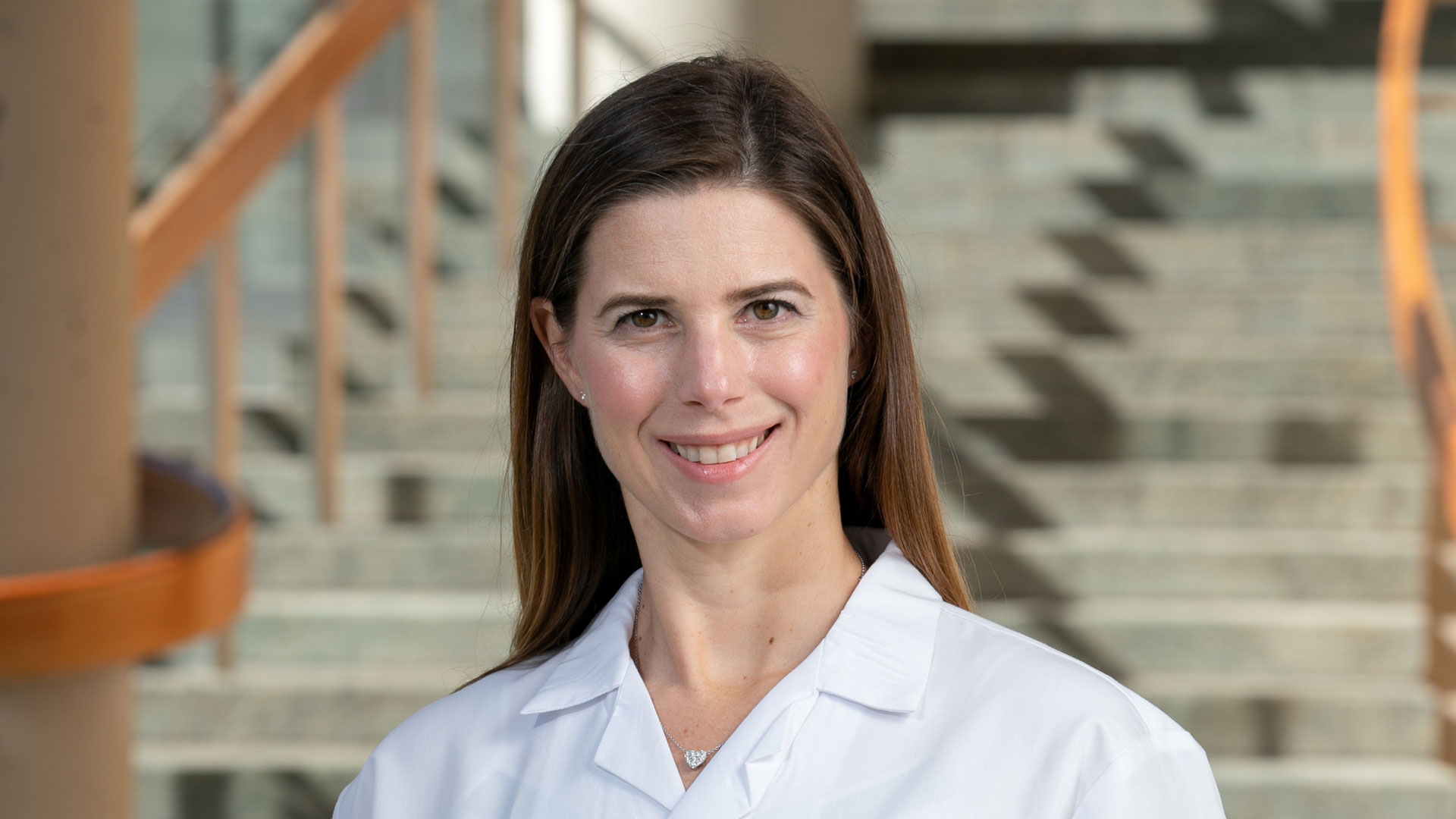
Dr. Kristy Stengel receives her first NIH R01!
RUNX1 is a critical regulator of gene expression programs driving hematopoietic development. Consistently, germline loss-of-function RUNX1 mutations in people are associated with a familial platelet disorder that predisposes individuals to the development of myeloid malignancy (RUNX1-FPDMM). Therefore, detailed mechanisms of RUNX1-mediated gene regulation will greatly improve our understanding of both blood development and hematopathology. Kristy Stengel, Assistant Professor of Cell Biology, was recently awarded a 4-year R01 from the National Heart, Lung, and Blood Institute to use novel strategies of rapid RUNX1 protein degradation to define the kinetic features of RUNX1 activity throughout hematopoietic development. These studies will lead to a better understanding of how RUNX1 alters gene expression networks to drive cell fate decisions.
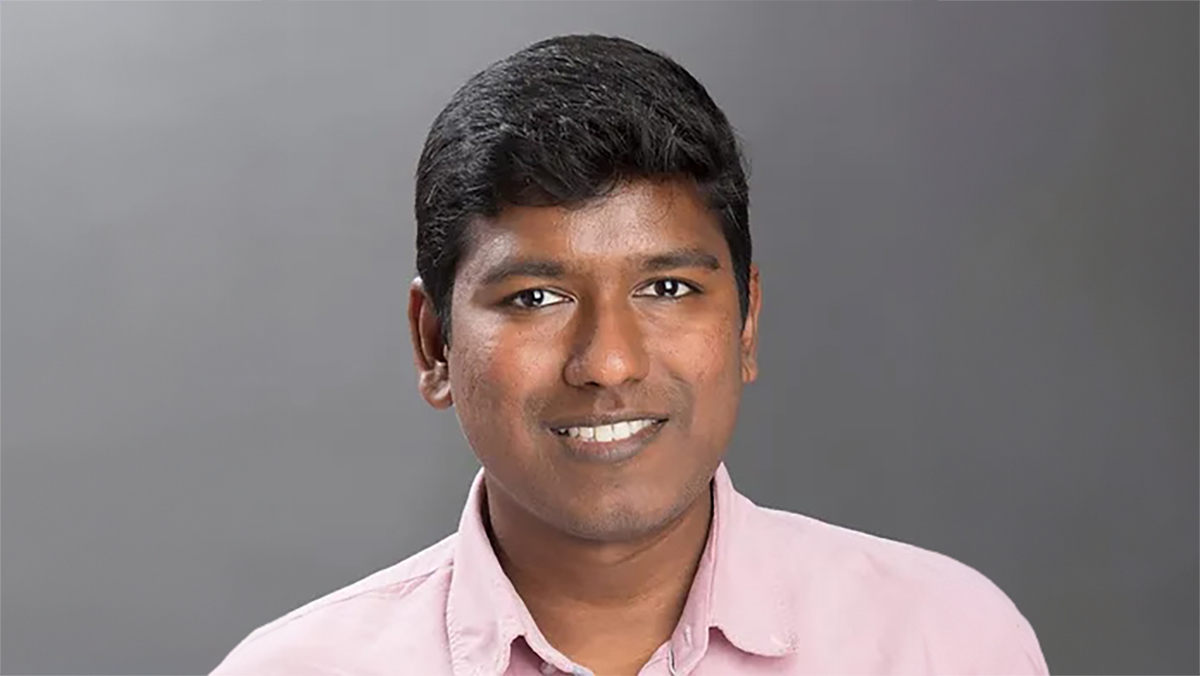
Congratulations to Dr. Sriram Sundaravel, and his mentor Dr. Ulrich Steidl, on receipt of the Special Fellow award from the Leukemia & Lymphoma Society (LLS)
Sriram Sundaravel, a postdoctoral fellow in the Steidl lab has been honored with the Special Fellow award from the Leukemia & Lymphoma Society (LLS). The LLS is the largest nonprofit funder of cutting-edge blood cancer research. The Special Fellow award is a mechanism which supports postdocs and instructors who have clearly demonstrated success in their current postdoctoral/instructor position and who will be competitive for an independent position. This award will support Sriram’s research into developing innovative approaches to study leukemia stem cell heterogeneity. More information about this award can be found here.
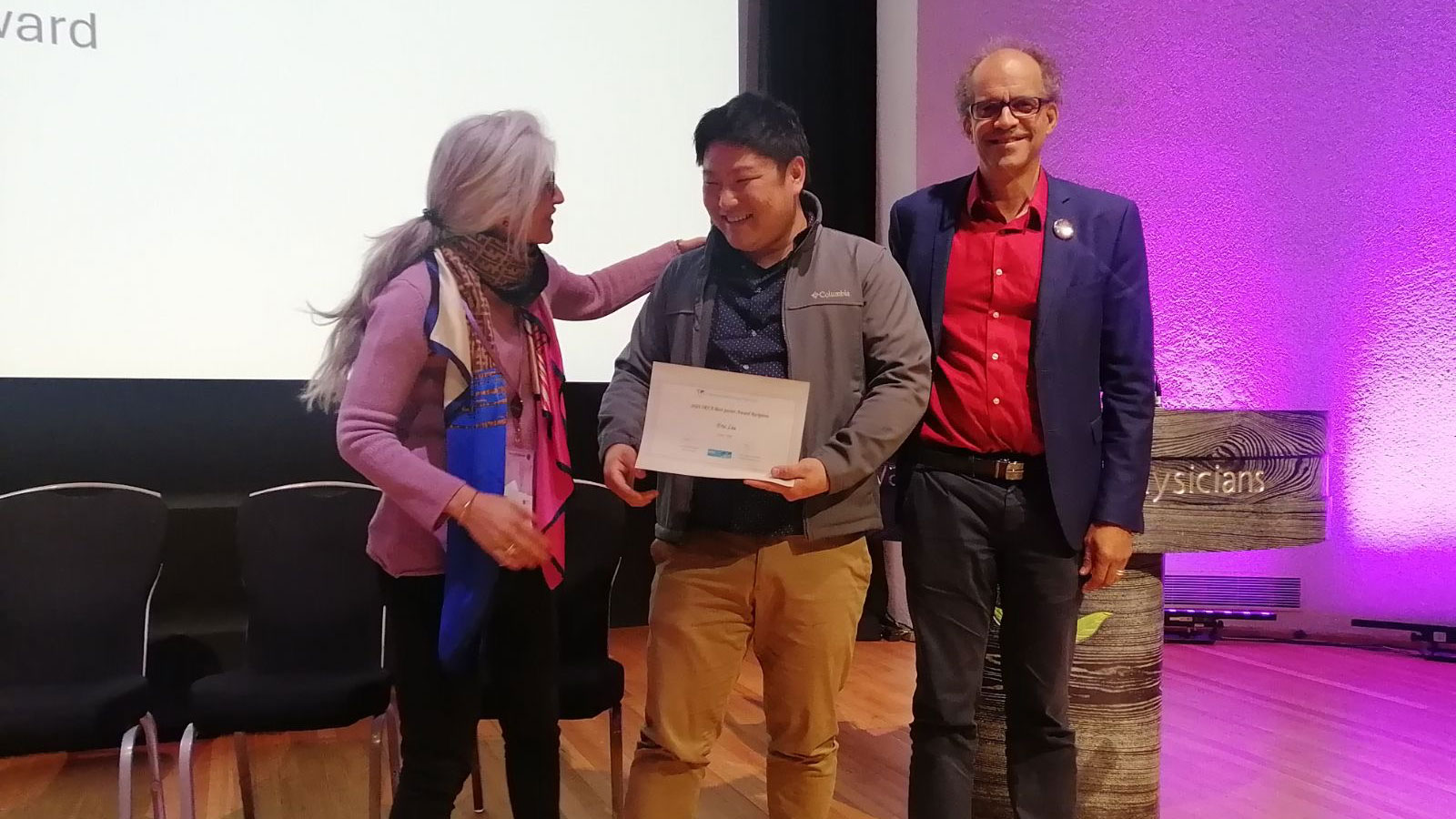
Congratulations to Eric Liu, and his mentor Hilda Ye, on receipt of a Best Poster Award at the 2024 HTLV conference!
PhD candidate Eric Liu received a Best Poster Award at the 21st Biennial International Conference on Human Retrovirology: HTLV and related viruses, which just concluded in London (June 2nd-5th, 2024). This is the first ever conference award given by the International Retrovirology Association (IRVA) to a study conducted at Einstein-Montefiore. Eric’s poster is entitled “North American adult T-Cell leukemia/lymphoma has frequent mutations in CCR4 and responds in vitro to a small molecule CCR4 antagonist”. In this study, the research team discovered that nearly half of the NA-ATLL cohort studied carried CCR4 mutations. CCL22 but not CCL17 induced strong chemotaxis in NA-ATLL, which can be potently inhibited by a small molecule CCR4 antagonist, suggesting a novel therapeutic opportunity for this devastating cancer.
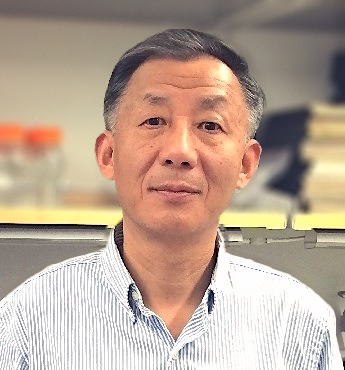
We are excited to welcome to the Cell Biology department the entire Sun lab! Dr. Zijie (ZJ) Sun is an internationally renowned prostate cancer investigator. He came to us from City of Hope National Medical Center, where he was a Professor in the Department of Cancer Biology and Molecular Medicine. Prior to joining City of Hope, Dr. Sun had been a faculty member for 18 years at Stanford University. Dr. Sun’s research program focuses on the molecular mechanisms underlying transcriptional control and cell signaling in development and tumorigenesis. Most recent studies from his lab demonstrate the roles of new stromal niches in prostate development and tumorigenesis. Ongoing projects in his lab are uncovering genomic and epigenetic alterations in controlling development, aging, and tumorigenesis. Dr. Sun joins us as a Professor in the Departments of Oncology and of Cell Biology, and the Director of Prostate Cancer Program at Montefiore Einstein Comprehensive Cancer Center. His laboratory is currently at Ullmann 211 but will soon move to their permanent home at Ullman 511.
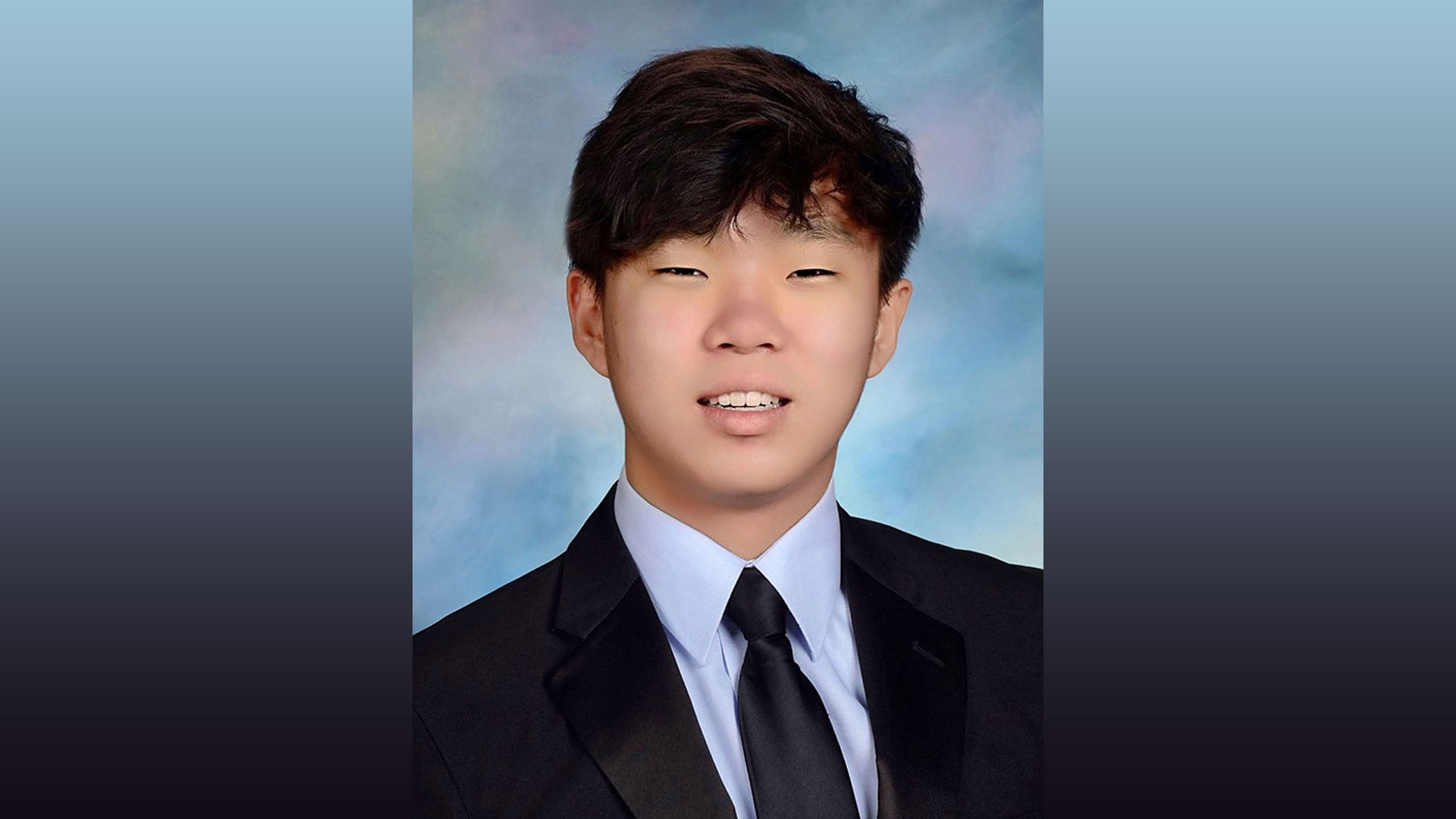
Congratulations to Brandon Kim for being selected by the Society for Science as a top 300 Scholar in the 83rd Regeneron Science Talent Search - the nation’s oldest and most prestigious science and mathematics competition for high school seniors. Brandon attends Great Neck South High School and is being mentored by his high school teacher Nicole Spinelli and Cell Biology faculty Lindsay LaFave. His project was selected from a pool of over 2000 applications across the country, underscoring his significant research achievements as a promising, young scientist. Congratulations, Brandon!
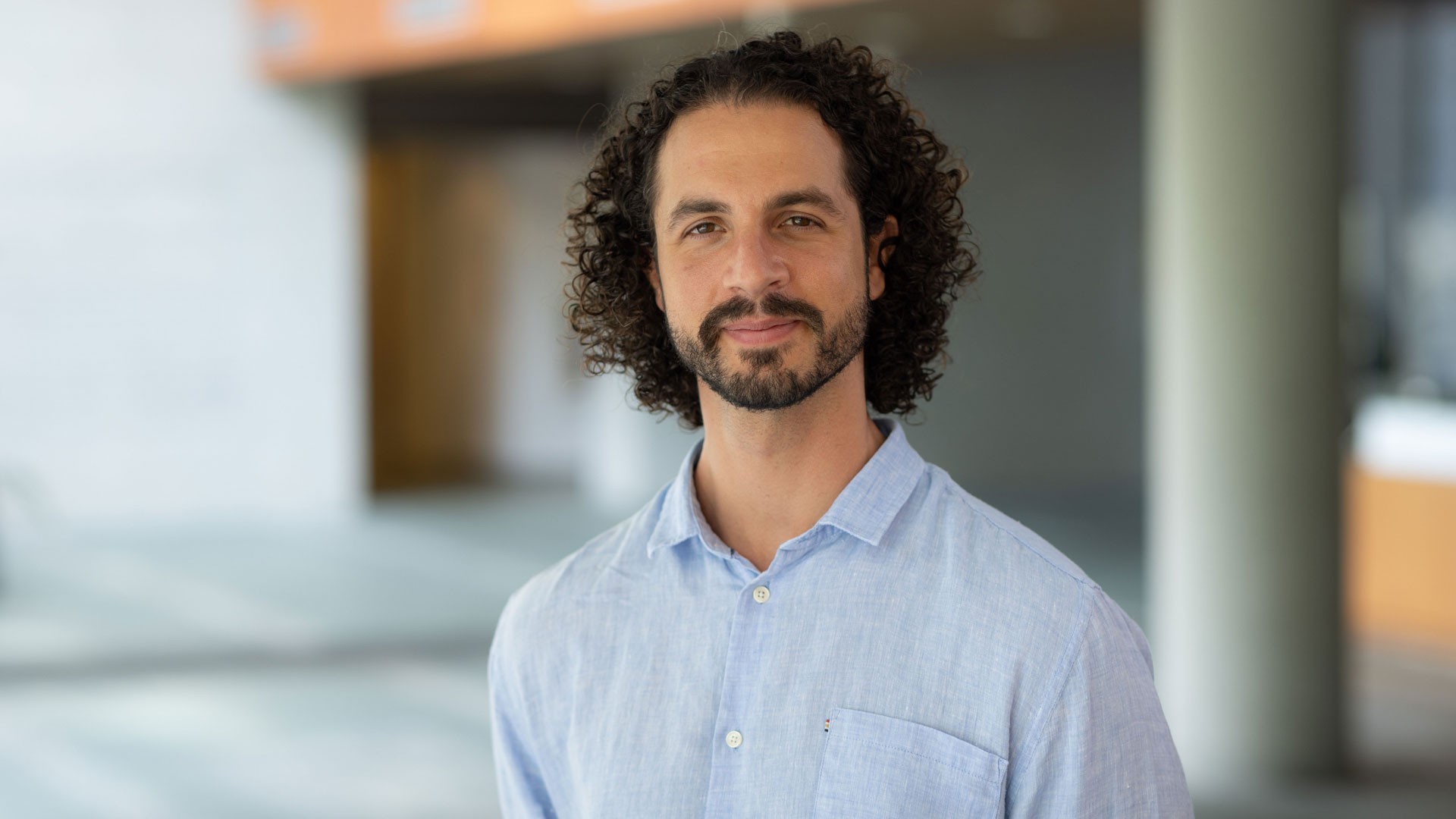
Congratulations to Michael Papanicolaou, PhD, and his mentor Julio A. Aguirre Ghiso, on receipt of a Cancer Research Institute Irvington Postdoctoral Fellowship. This prestigious fellowship provides funding to qualified post-doctoral fellows at leading universities around the world who pursue research in fundamental immunology or cancer immunology. In this awarded project, co-mentored by Ross Levine (Sloan Kettering) and XingXing Zhang (Einstein), Michael will investigate how age-related clonal hematopoiesis influences breast cancer dormancy and metastasis. Congratulations, Michael!
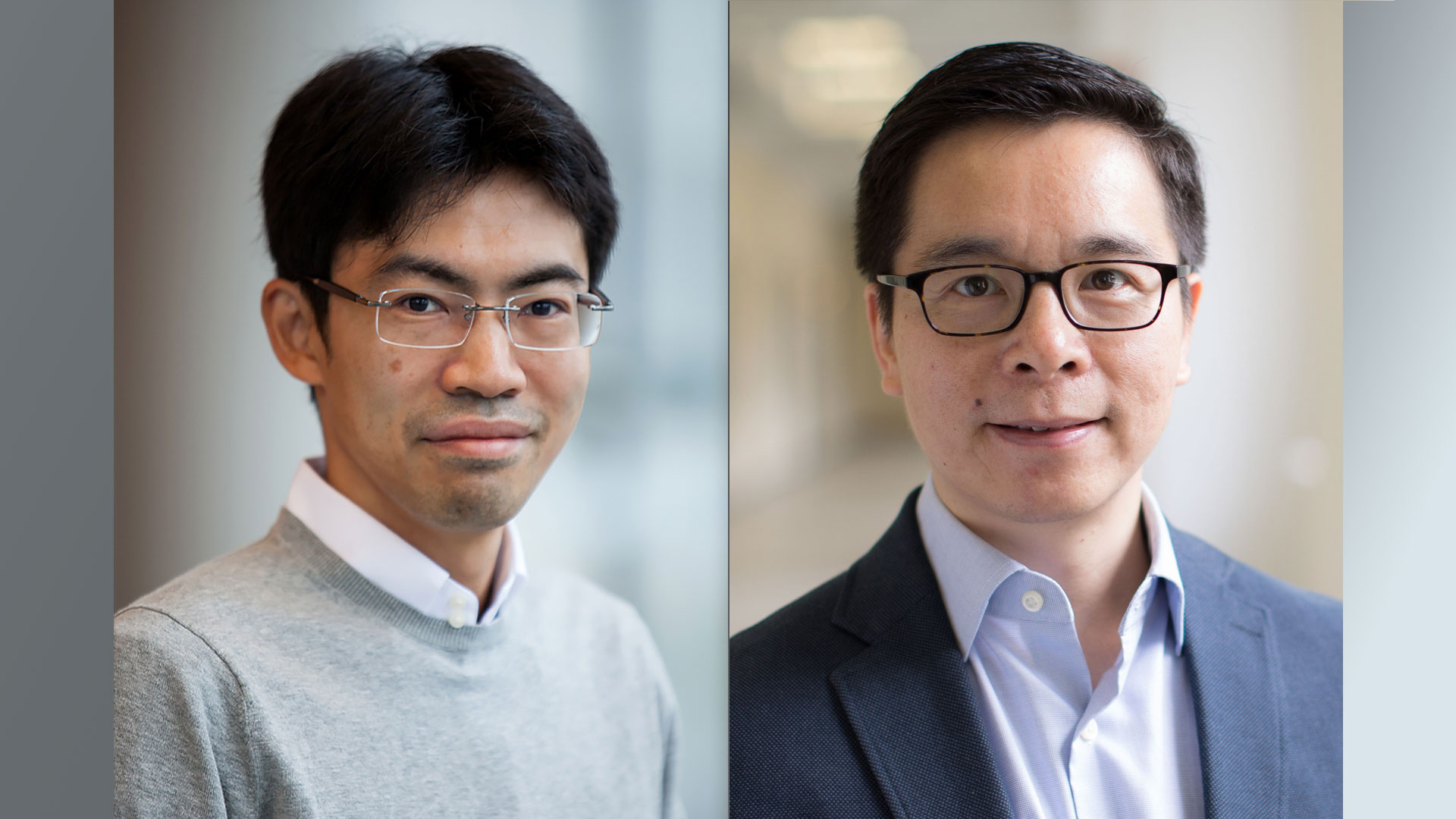
The Department of Cell Biology is celebrating the promotion of two of our faculty members to full Professorship with tenure. Congratulations to Dr. Wenjun Guo and Dr. Keisuke Ito! This is a highly deserved recognition that reflects their outstanding expertise and accomplishments in their fields of study as well as their significant contributions to the missions of our medical school.
Dr. Guo received his Bachelor of Science from Nankai University, followed by a Ph.D. from Weill Cornell Medical School / Sloan-Kettering Institute, New York. In 2005, he joined the laboratory of Dr. Robert A. Weinberg at the Whitehead Institute for his postdoctoral training. In 2011, Dr. Guo was recruited by the then newly established Ruth L. and David S. Gottesman Institute for Stem Cell and Regenerative Medicine Research and joined the Cell Biology faculty as an Assistant Professor. His research interests are in cellular plasticity in cancer progression and metastasis.
After earning both his M.D. and Ph.D. degrees from Keio University, Japan, Dr. Ito came to the United States in 2006 for his postdoctoral training at the Memorial Sloan Kettering Cancer Center. In 2012, Dr. Ito was recruited to Einstein from Harvard Medical School, where he was an Instructor in Medicine, to join Cell Biology and the newly established Ruth L. and David S. Gottesman Institute for Stem Cell and Regenerative Medicine Research as an Assistant Professor. Dr. Ito’s research program focuses on hematopoietic homeostasis, covering a variety of topics ranging from stem cell fate decisions to myelodysplastic syndrome, leukemia, and sickle cell disease pathogenesis.
Once again, the warmest congratulations to Drs. Guo and Ito! We truly appreciate your hard work and dedication to the department and the Einstein community.
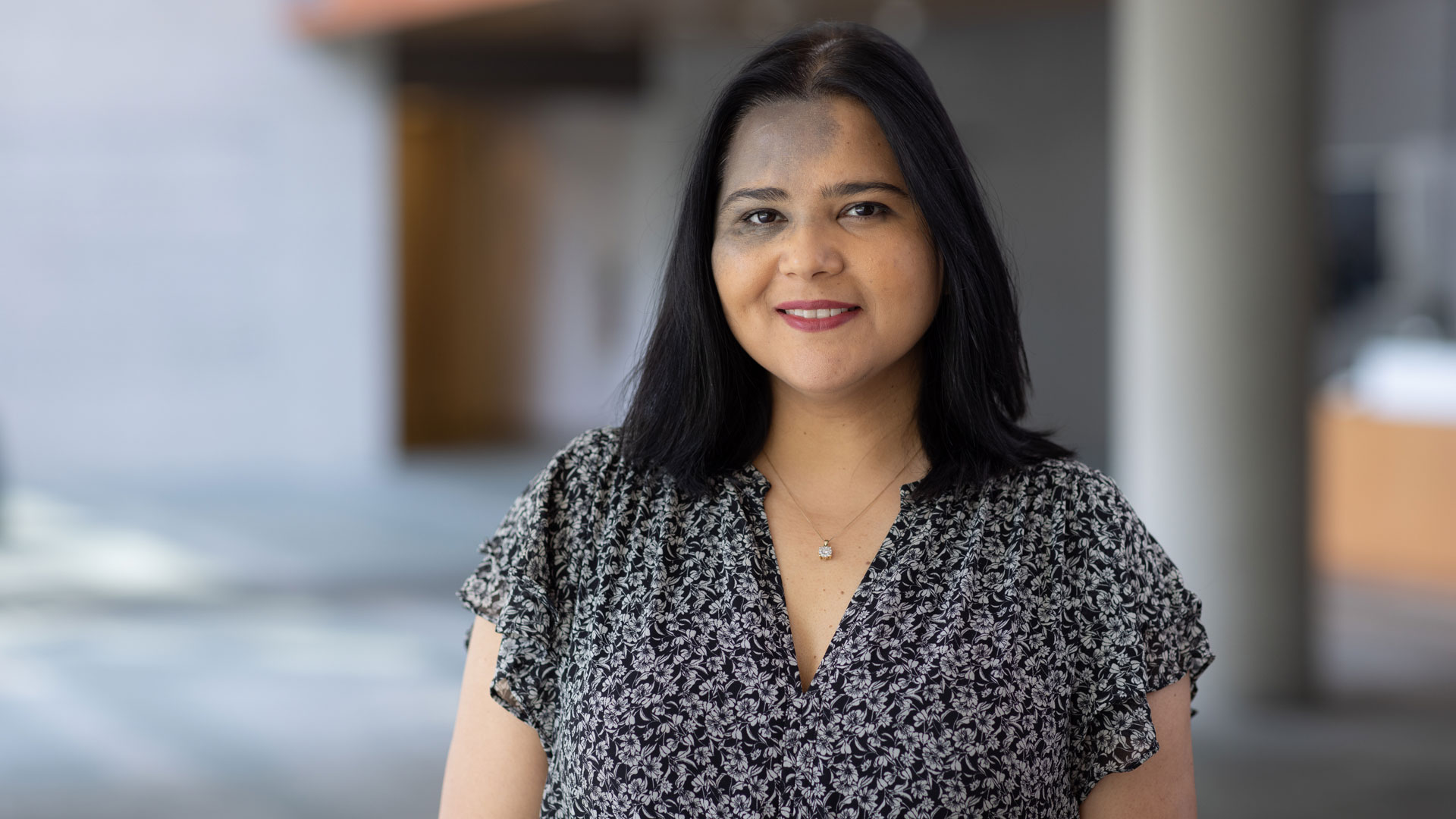
Postdoctoral fellow Dr. Rama Kadamb from the Aguirre-Ghiso lab gave an oral presentation at the Society for Melanoma Research (SMR) held at Philadelphia (06th-09th Nov 2023). In her talk, she shared findings that NR2F1, a lineage commitment and dormancy regulator transcription factor, critically regulates disseminated cancer cell dormancy in spontaneous uveal melanoma (UM). Her study reveals that NR2F1 epigenetically opposes oncogenic Gq-YAP1 signaling, which drives progression of advanced metastatic disease in UM. These findings help elucidate the mechanism for the longstanding medical mystery surrounding late relapse in UM patients and hold promise for the development of anti-metastatic therapies.
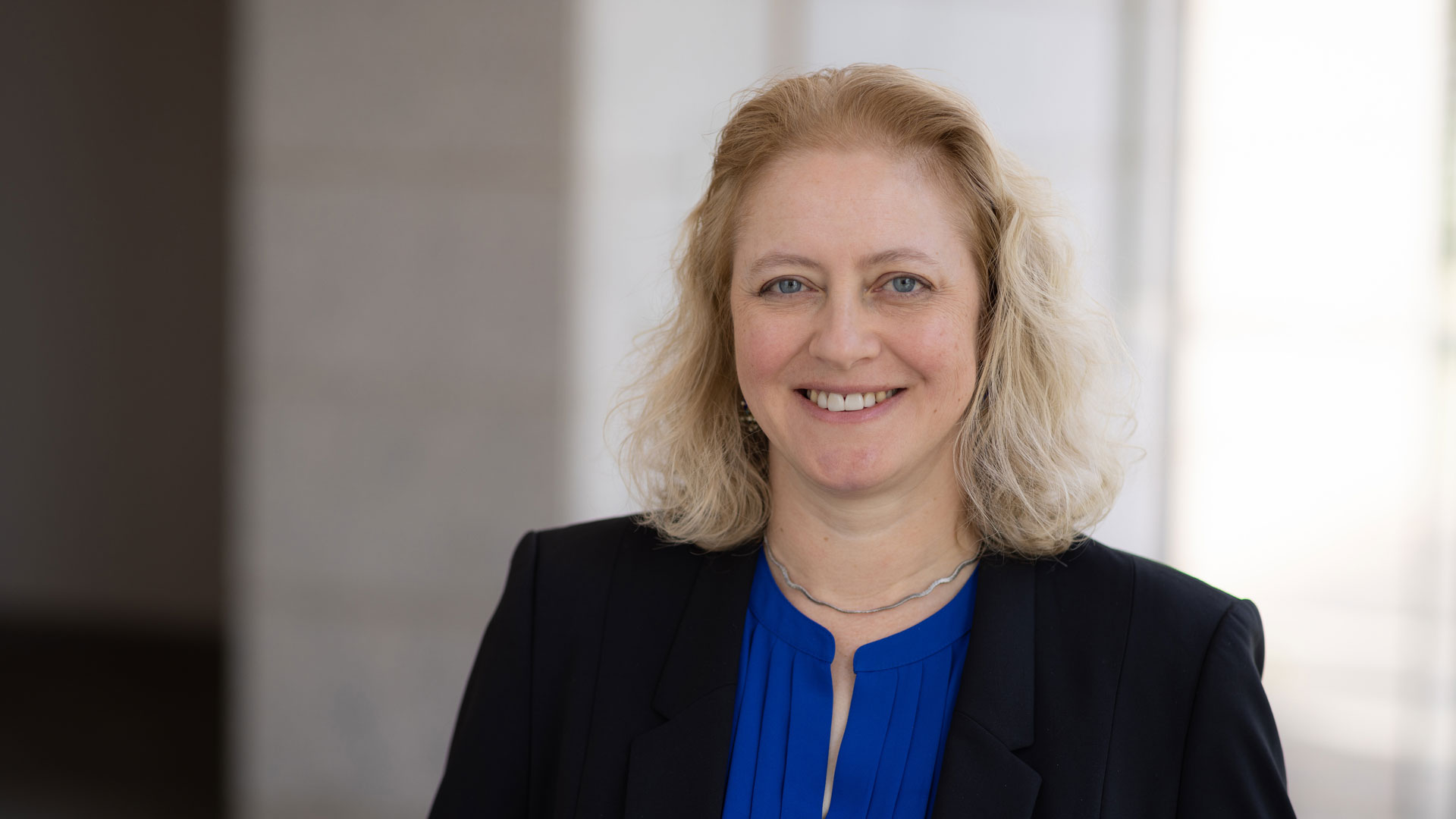
In a remarkable achievement that reflects her outstanding accomplishments as a physician scientist, Dr. Kira Gritsman, co-leader of the Montefiore Einstein Comprehensive Cancer Center Stem Cell & Cancer Biology Program and recently named Betty and Sheldon Feinberg Senior Faculty Scholar in Cancer Research, has been elected as an Active Member of The American Society for Clinical Investigation (ASCI) for the year 2024. This news comes as part of the ASCI's announcement, where 100 Active and International members were elected to represent academic excellence across 50 different institutions. This recognition underscores Dr. Gritsman's significant contributions to academic medicine, making her a source of pride for Einstein's Cell Biology department. Dr. Gritsman will officially join this esteemed group at the ASCI Dinner and New Member Induction Ceremony on April 5, 2024, during the AAP/ASCI/APSA Joint Meeting at the Swissotel Chicago. ASCI, established in 1908, is one of the oldest and most respected medical honor societies in the United States. Congratulations, Dr. Gritsman!
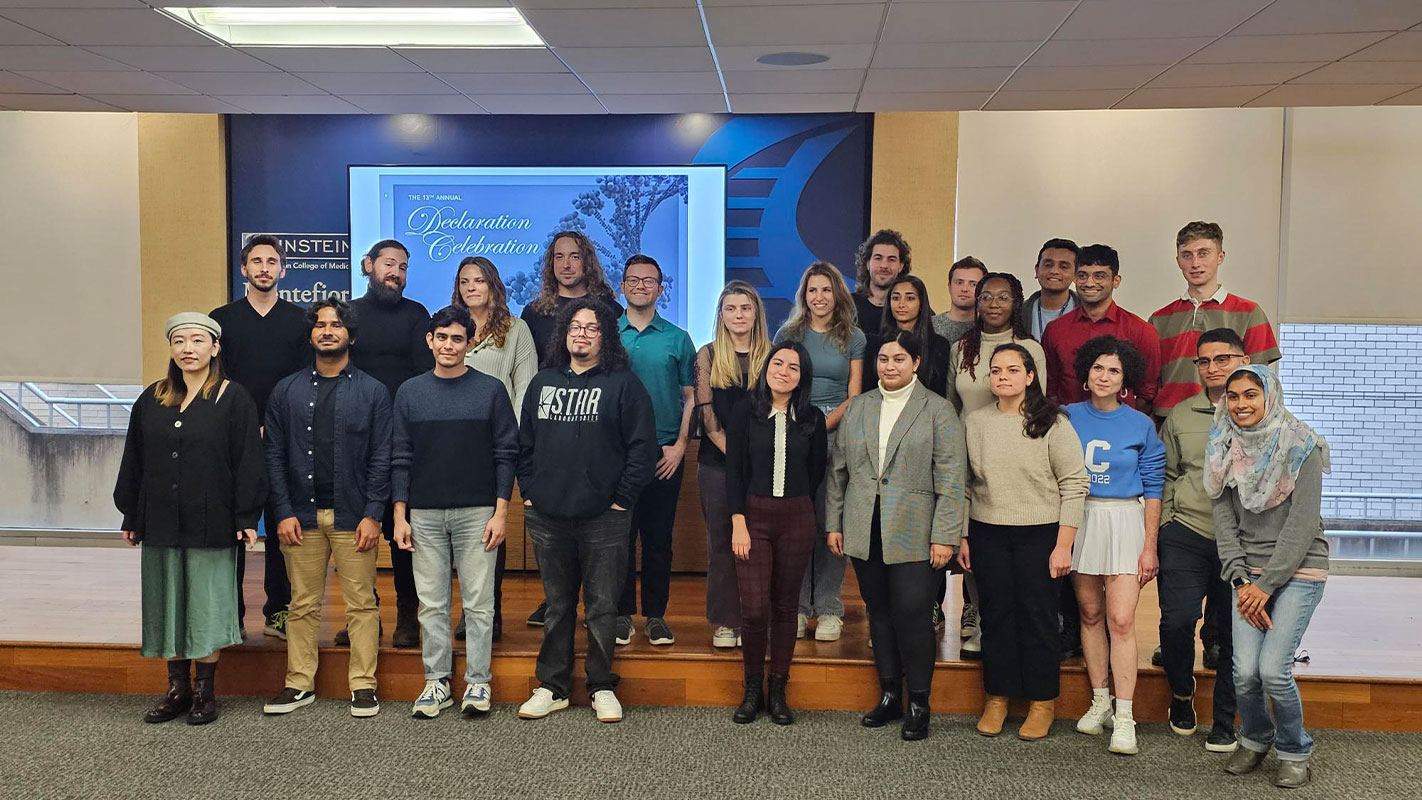
We are thrilled that 9 new graduate students recently declared a thesis lab in our
department!! We eagerly welcome you and look forward to learning about your research
projects, talent, and ambitions in various departmental forums. With so much to offer to our
trainees, we encourage you to explore our diverse research programs, enjoy various
departmental activities, and make new friends. We are confident that you will soon find Cell
Biology a truly exciting place to pursue your graduate studies. Congratulations to our new
students and their mentors!
-
Farzana Begum
Mentors: Maria Marianovich & Ulrich Steidl
-
Sara Masavarpour
Mentors: Roger Chang & Lindsay LaFave
-
Amber Buhagiar
Mentor: Ulrich Steidl
-
Brendan Mullaley
Mentor: Lindsay LaFave
-
Lionel Colon
Mentor: Julio Aguirre-Ghiso
-
Ariel Raskin
Mentor: Kristy Stengel
-
Eric Liu
Mentor: Hilda Ye
-
Luis Valencia Salazar
Mentor: Julio Aguirre-Ghiso
-
Noah Martin
Mentor: Robert Singer